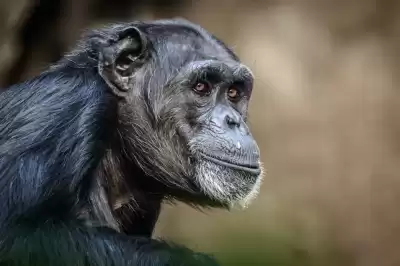Bonobo Study Reveals Clues into Early Human Alliances - Good Neighbours
Study finds bonobos, like humans, cooperate with outsiders. Research suggests human cooperation may be innate. Female bonobos form coalitions against sexual aggression.
The human society is built on our ability to work together with others outside of our immediate social circles and families. A recent study published in Science reveals that bonobos, our closest living relatives, also form alliances and cooperate with others, particularly in grooming, food sharing, and even against sexual aggressors.
The study, conducted by Liran Samuni of the German Primate Center in Gottingen and Martin Surbeck of Harvard, offers insight into our past and suggests an evolutionary basis for the collaborative behaviors of our own species. Bonobos, alongside chimpanzees, are closely related to humans, making them a valuable subject of study for understanding our own cooperative tendencies.
Unlike chimpanzees, who often engage in hostile and violent interactions with other groups, bonobos' interactions with outsiders had not been well examined due to the difficulty of studying them in their natural habitat in the remote regions of the Democratic Republic of the Congo. However, the study found that bonobos spent 20% of their time together, engaging in various activities, despite their low level of genetic relatedness.
The research also revealed that cooperation between bonobo groups is driven by select individuals who form reciprocal relationships with others, regardless of genetic relatedness. Female bonobos were found to form coalitions, both within and across groups, to protect themselves from sexual aggression and maintain reproductive autonomy.
The findings challenge the assumption that hostility towards outsiders is innate to human nature. While bonobos and chimpanzees share similarities with humans, such as forming alliances and cooperative behaviors, they also exhibit differences, such as the absence of sexual coercion in bonobos and the unique social structures of each species.
The study offers an alternative scenario to the idea that human cooperation is against our nature, shedding light on how and why humans became such an unusual ape. By studying bonobos and chimpanzees, researchers hope to gain a deeper understanding of the natural selection forces that shaped our own species' unique cooperative behaviors.












Comments on Bonobo Study Reveals Clues into Early Human Alliances - Good Neighbours